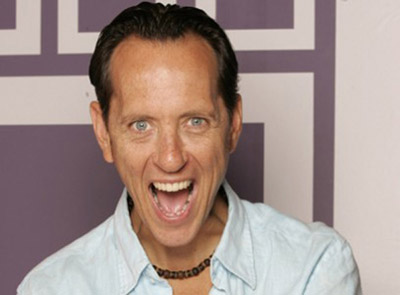SA Power 100 – 2012: Richard E. Grant
TheSouthAfrican.com/ – 6th November, 2012

Richard E Grant is an award-winning actor who lives in London.
By Jeremy Kuper.
Bullet Biography
Born: 5 May 1957 in Swaziland
Resides in: London with his wife, voice coach Joan Washington, daughter Olivia and stepson Tom
Education: Attended Waterford boarding school and studied drama at University of Cape Town
Career trajectory: Co-founded the Troupe Theatre Company, a multiracial, avant garde group, while at university in Cape Town
Moved to London in 1982 and got his big break in cult 1986 film Withnail and I
Since then has starred in a variety of films including Dracula, Gosford Park, Bright Young Things and The Iron Lady, as well as television shows such as The Scarlet Pimpernel, Hound of the Baskervilles and Doctor Who.
Theatre appearances include My Fair Lady and The Importance of Being Earnest
In 2005, wrote and directed Wah Wah, a film based on his own experiences as a teenager in Swaziland in the 60s, shortly before independence
Currently filming latest film Dom Hemingway, starring alongside Jude Law, in South of France
What was the hardest thing about coming to the UK from Southern Africa?
Leaving everyone and everything that was nearest and dearest to me was an incredible wrench. After I graduated from UCT in 1979, a bunch of us founded the Troupe Theatre company based at the People’s Space theatre in Cape Town and working between there, the Baxter theatre and the Market theatre for two years. An unforgettable and unique experience forged on very strong friendships. My father died at the age of 52 in October 1981 and I felt as if my world had flipped on itself. I was 24 and suddenly felt it was now or never to try and crack a career in London. I reckoned that if I couldn’t get regular work as an actor by the time I was 30, I would return to Swaziland and sell pineapple beer!
What was your big break?
Being cast as an upper class, alcoholic, drug-addicted actor in Withnail and I in 1986. It singularly changed my life and career and I owe every good thing that has come my way since then to its writer-director Bruce Robinson for taking the risk of casting a total unknown in a brilliantly written lead role.
Did you have to reinvent yourself to fit into the British acting scene?
Having grown up in Swaziland which had a predominantly English expatriot community with a thriving amateur theatre club afforded me a wealth of early experience. I subscribed to Plays and Players magazine detailing the London theatre scene every month and I vicariously followed actors and playwrights from afar so it didn’t feel that much of a cultural shift when I emigrated. However, what was overwhelming was moving to a city of several million people and being totally anonymous after having been brought up in Mbabane where everyone mostly knew everybody.
When you were at university did you ever have to act as a tree (this question is from our publisher)?
During my first year at UCT drama school we did have acting exercises observing, then imitating animal behaviour, but never trees. Though I did get a review when I was in A Midsummer Night’s Dream that denounced my performance as being ‘wooden’. Haha!
South Africans have claimed you as their own, but do you see yourself as Swazi, South African, English or all three?
Even though I’ve lived in London for three decades, much longer than I ever did in Swaziland and South Africa combined, I still feel the magnetic pull of where I grew up and return regularly like a homing pigeon. It’s part of my DNA so I feel that I am deeply connected to all three countries.
About the author: Jeremy Kuper is a journalist and editor of Gateway to Africa. His work has appeared in a number of publications including The Guardian and Mail & Guardian.




